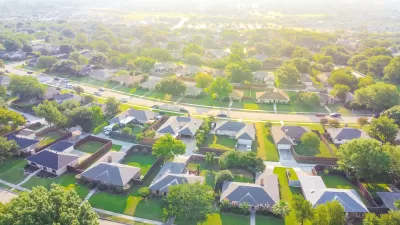The city of Miami will for the first time require that affordable housing be included in private residential development projects. The mandatory inclusionary zoning was made more palatable to developers by upzoning the affected area.

"In what could be a substantial step forward in local efforts to stem a housing affordability crisis, the city of Miami appears ready to begin requiring developers of some new residential towers to set aside a percentage of units for residents with low incomes," reports Andres Viglucci.
"The 'inclusionary zoning' measure, approved late Thursday by the City Commission on a preliminary 4-0 vote, is the first in Miami-Dade County to mandate inclusion of affordable housing in new private development projects." Adds Viglucci. The measure will face a second, deciding vote in December.
Miami's new inclusionary zoning regulations are confined to a 30-block area of "blighted and vacant" land, called the Omni community redevelopment district, which is already seeing redevelopment investments.
According to the article, the proposed inclusionary zoning measure won support from developers and land use attorneys that would typically oppose regulatory mandates because the affordable housing requirements come with increased density, "providing the developers more buildable density to offset the lower revenue they will generate from setting aside specific percentages of units for strictly defined affordable and workforce housing."
FULL STORY: Miami will start making developers provide affordable housing in some new towers

Alabama: Trump Terminates Settlements for Black Communities Harmed By Raw Sewage
Trump deemed the landmark civil rights agreement “illegal DEI and environmental justice policy.”

Study: Maui’s Plan to Convert Vacation Rentals to Long-Term Housing Could Cause Nearly $1 Billion Economic Loss
The plan would reduce visitor accommodation by 25% resulting in 1,900 jobs lost.

Why Should We Subsidize Public Transportation?
Many public transit agencies face financial stress due to rising costs, declining fare revenue, and declining subsidies. Transit advocates must provide a strong business case for increasing public transit funding.

Paris Bike Boom Leads to Steep Drop in Air Pollution
The French city’s air quality has improved dramatically in the past 20 years, coinciding with a growth in cycling.

Why Housing Costs More to Build in California Than in Texas
Hard costs like labor and materials combined with ‘soft’ costs such as permitting make building in the San Francisco Bay Area almost three times as costly as in Texas cities.

San Diego County Sees a Rise in Urban Coyotes
San Diego County experiences a rise in urban coyotes, as sightings become prevalent throughout its urban neighbourhoods and surrounding areas.
Urban Design for Planners 1: Software Tools
This six-course series explores essential urban design concepts using open source software and equips planners with the tools they need to participate fully in the urban design process.
Planning for Universal Design
Learn the tools for implementing Universal Design in planning regulations.
Smith Gee Studio
Alamo Area Metropolitan Planning Organization
City of Santa Clarita
Institute for Housing and Urban Development Studies (IHS)
City of Grandview
Harvard GSD Executive Education
Toledo-Lucas County Plan Commissions
Salt Lake City
NYU Wagner Graduate School of Public Service





























